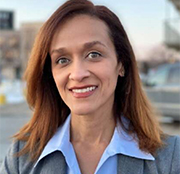by Karris Golden
There’s a moment when you know the Holy Spirit is present. But it can be difficult to pinpoint what gives you certainty.
I have had these feelings — most often during prayer or worship with others. It seemed to me the others felt them, too: the tingling, the sense of awe, the urge to breathe carefully.
I would wonder, “What is this remarkable thing?”
And, “Why is it happening?”
Also, “What do others believe this unusual and wonderful occurrence to be?”
Answers to each question came almost as quickly:
“The Holy Spirit.”
“The Holy Spirit.”
“The Holy Spirit.”
Of course, there are other explanations, with “coincidence” and “fluke” offered rather frequently. It’s difficult to contextualize the Holy Spirit in such terms — like trying to catch smoke with a butterfly net.
I won’t say it’s impossible. Instead, I’d argue proving and rationalizing the Holy Spirit’s presence might be an attempt to answer a question that doesn’t need an answer.
Instead, we should attempt to pinpoint the reason for our certainty — why we felt we were in the presence of the divine.
With this lens, I read Acts, Chapter 2. The passage picks up several weeks after Jesus’ Crucifixion, Resurrection and Ascension.
When the day of Pentecost came, they were all together in one place. Suddenly a sound like the blowing of a violent wind came from heaven and filled the whole house where they were sitting. They saw what seemed to be tongues of fire that separated and came to rest on each of them. (Acts 2: 1-3)
Onlookers were in awe. Now there were staying in Jerusalem God-fearing Jews from every nation under heaven. When they heard this sound, a crowd came together in bewilderment because each one heard their own language being spoken.
Utterly amazed, they asked: ‘Aren’t all these who are speaking Galileans? Then how is it that each of us hears them in our native language? Parthians, Medes and Elamites; residents of Mesopotamia, Judea and Cappadocia, Pontus and Asia, Phrygia and Pamphylia, Egypt and the parts of Libya near Cyrene; visitors from Rome (both Jews and converts to Judaism); Cretans and Arabs—we hear them declaring the wonders of God in our own tongues!’ Amazed and perplexed, they asked one another, ‘What does this mean?’ (Acts 2: 5-12)
Indeed. In the apparent chaos of wind, smoke and fire, people of varied ages, genders, social classes and skin tones cried out simultaneously in myriad languages. That this would establish Christ’s church on earth might sound absurd, but that’s exactly what happened.
Some didn’t sense the Holy Spirit’s presence. They rationalized, and some loudly insisted the disciples were drunk.
Peter admonished the doubters, reminding the crowd of Joel’s prophecy:
“In the last days, God says, ‘I will pour out my Spirit on all people. Your sons and daughters will prophesy, your young men will see visions, your old men will dream dreams. Even on my servants, both men and women, I will pour out my Spirit in those days, and they will prophesy. I will show wonders in the heavens above and signs on the earth below, blood and fire and billows of smoke. The sun will be turned to darkness and the moon to blood before the coming of the great and glorious day of the Lord. And everyone who calls on the name of the Lord will be saved.’” (Acts 2: 17–21)
This isn’t a small story. It’s not the denouement that follows Easter. It is not a random, weird event during times when odd things were commonplace.
Instead, Pentecost is the springboard of Christ’s church. It marks the time when his former followers began spreading his ministry. It is the nexus of our faith — where Jesus’ truth, way and light were revealed to be a community.
And it was more. While Pentecost is a time of celebration, it also presents us with difficult truths we ultimately can’t avoid.
When I enter the Pentecost story, I am in the crowd. I listen to Peter from a sea of black, brown, beige and ruddy faces. I wonder, “What in the world is going on? Why is this happening? Do others feel what I’m feeling?!”
The story, like Jesus, is honest, challenging and even a little messy. It’s also relatable as we struggle with war, civil unrest, political upheaval, violence, racism, bias, exclusion and injustice. Pentecost reminds us even as it admonishes: Christ’s church is the people — all nations, languages, ages, genders and colors.
Further, we must understand concepts reinforced at Pentecost should follow us into our daily lives. How does Pentecost connect to all that’s going on in the world? How does it draw together the touchstones of Christ’s ministry for all, not a few?
To embrace Pentecost in this way is to celebrate it like Advent and Christmas: We’d anticipate, prepare, and plan. Maybe we’d strive to create a sense of Pentecost all year.
I’m not joking—not even a little. Pentecost should inspire passion, hope and the belief that God blesses every person.
We must be builders, preparers, tenders, nurturers, stewards and protectors. If we look at Pentecost as a call to include, seek understanding and broaden circles, what can we do individually and in our churches and communities?
 Karris Golden has been a writer and journalist for nearly three decades. She belongs to Bethlehem Lutheran in Cedar Falls, Iowa. Her work appears regularly in ELCA publications and secular newspapers and magazines, and she holds an editorial fellowship with the Cedar Rapids (Iowa) Gazette. Karris has edited more than two dozen books, including Robert James Waller‘s final volume, The Summer Nights Never End … Until They Do: Life, Liberty, and the Lure of the Short-Run.
Karris Golden has been a writer and journalist for nearly three decades. She belongs to Bethlehem Lutheran in Cedar Falls, Iowa. Her work appears regularly in ELCA publications and secular newspapers and magazines, and she holds an editorial fellowship with the Cedar Rapids (Iowa) Gazette. Karris has edited more than two dozen books, including Robert James Waller‘s final volume, The Summer Nights Never End … Until They Do: Life, Liberty, and the Lure of the Short-Run.


This Daily Devotion has meant so much to me. I was homebound last year and it was such a lift to me. Now, I send it to a friend who lost her husband recently. She is enjoying and sharing her thoughts with me.
THANK YOU! Doris (Dot)
I WOULD LIKE TO use this
VBS material
Thank you, I look forward to continuing to follow and embrace comments.